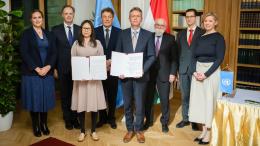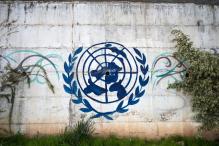Last month we were asked to provide a series of inputs to the Advisory Group of Experts working on the Review of the Peacebuilding Architecture (PBA). All of those papers are available at the bottom of this note, and we will be featuring guest posts by a number of the authors to dive in to some of these topics over the next few weeks. But today I wanted to explore some ideas related to the outcomes of the review.
In our paper on conceptual issues we discussed the lack of a working definition of peacebuilding. But the more that I reflect, the more I think that it is urgent for the panel to tackle the Peacebuilding Commission’s (PBC’s) lack of a purpose.
The 2004 High Level Panel on Threats Challenges and Change, when first proposing a peacebuilding architecture, called for “...a single intergovernmental organ dedicated to peacebuilding, empowered to monitor and pay close attention to countries at risk, ensure concerted action by donors, agencies, programmes and financial institutions, and mobilize financial resources for sustainable peace.”
This requires a PBC that works with the Security Council, in a mutually reinforcing way. The current iteration of the PBC has struggled to find a good working relationship with the Council – and in part because of this, failed to address the core needs outlined by the HLP. Four particular truths remain:
-
In countries on the Security Council’s agenda, development actions are not linked to the goals set by the Council.
-
There is no viable instrument to hold the United Nations and Member States accountable for their actions in mission countries.
-
The UN family does not operate efficiently by coordinating where there are common goals, or consciously choosing not to, when there is divergence.
-
The international community, as a whole, also does not leverage the efforts of the UN. Yet the UN is their organization.
There is, of course, no single way to build peace. Perfect coordination is arguably not desirable, and certainly not achievable. But there is no question that the current system is neither effective enough, nor efficient enough.
The PBC should both fix its relationship with the Council and find a purpose by:
-
Offering to the Council that the PBC take on the role of providing a monitoring and accountability framework for development action – anything that is NOT peace and security – in countries on the Council agenda.
-
It should do so at the request of the Council and with the consent of the country involved.
-
Once a year, for each country, the PBC should present a report to the Council on the performance of the international development architecture (UN and Member States) with respect to that country. This should include both commentary on the coherence of the UN and on how broader multi-lateral (IFI) and bilateral assistance is or is not contributing to the Council’s goals.
-
Once a year, the PBC should present an overall report to the General Assembly on the performance of the UN system in these countries, and make specific recommendations to ECOSOC to improve the performance of the UN in conflict-affected contexts. It should also make similar commentary with respect to broader multilateral and bilateral assistance.
-
-
The PBC should also offer to play this role for countries that have migrated beyond the Council Agenda, with their consent. It should formally be willing to engage for the entire duration required to create sustainable national institutions – 15 years or more.
-
During this period, the PBC should also prepare an annual report to the relevant GA bodies on the overall performance of the UN system in these contexts, with recommendations for improvements.
-
This idea requires a vastly different Peacebuilding Support Office (PBSO), and perhaps even a different PBC. It could require a stronger Secretariat, and longer-term Member State commitments to service on the PBC, as well as greater requirements for participation. I am sure that there are further flaws that some of you can point out.
This model would offer a clear role and value-added for the PBC, and a clear role with respect to the Security Council. As such, it would strengthen the performance of the United Nations as a whole and its ability to support countries emerging from conflict.
There is also one critical area that the review should not touch: It should not argue for more inter-governmental processes that micro-manage the UN response to conflict. As the Civilian Capacity Review (and the Brahimi report before it) have argued, the UN needs more flexibility, not less. This means that the review and the PBA should stay out of the UN’s planning and analysis problems and architectural issues. These are serious, and must be addressed. But this is not the right time or place.
When the PBC’s serious engagement with countries, using the model described above, raises questions on planning processes, the Commission could certainly engage the Secretary-General and push for sorely-needed improvements. But this should be done when the PBC has marshalled the required evidence, rather than because the Review wants to solve all the problems of peacebuilding.
Finally, if the panel cannot find a clear rationale for the Peacebuilding Commission’s existence, it should recommend that it be shut down.
This is overwhelmingly unlikely and would be difficult. But it is an obligation on independent processes to use their independence to help the UN improve. And another lumbering, purposeless set of meetings is not what people in conflict-affected countries need from their United Nations.
Download
-
The evolution of peacebuilding: Charles T. Call
-
Changing terrain for peacebuilding: Rahul Chandran
-
Conceptual issues and lessons learned: Rahul Chandran
-
Inclusivity in peace processes: Thania Paffenholz
-
Peacebuilding and institution building: Sarah Hearn
-
Peacebuilding and political accompaniment: Patrick R. Travers
-
Peacebuilding and economic recovery: Nadia F. Piffaretti
-
Financing for peacebuilding: Mariska Van Beijnum
-
Regional approaches to peacebuilding: Cedric de Coning
-
Peacebuilding and service delivery: Lisa Denney et al.


